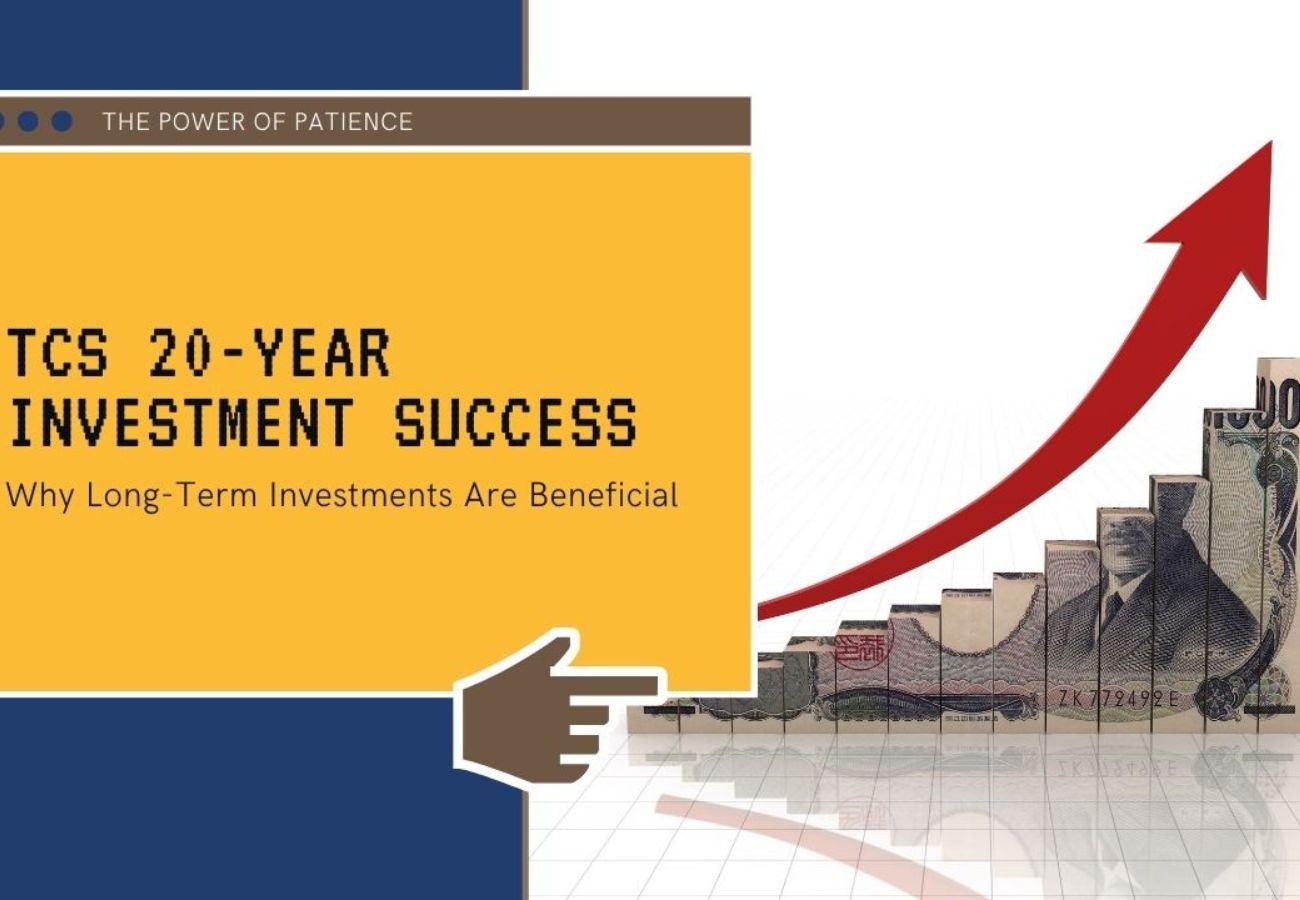TCS 20-Year Rise: Why Long-Term Investment Pays Off
Introduction: In 2004, the Initial Public Offering (IPO) of Tata Consultancy Services (TCS) marked a significant milestone in the Indian stock market. As of yesterday, which was the 25th of August, TCS completed 20 years since its IPO. This journey has not only been remarkable for the company but also for its investors who have seen tremendous wealth creation over these two decades. Let’s delve into how TCS has transformed from a market cap of ₹41,000 crores to ₹16 lakh crores, and what it means for long-term investors.
The Incredible Growth of TCS |
| When TCS was launched in the market in 2004, its market capitalization was ₹41,000 crores. Fast forward to today, that figure has soared to an astonishing ₹16 lakh crores. To put this into perspective, an investment in TCS at the time of its IPO would have multiplied nearly 40 times over 20 years. This is a testament to the power of long-term investing in fundamentally strong companies. |
Dividend Payouts and Wealth Creation |
| TCS has consistently rewarded its shareholders with dividends, maintaining a dividend yield of around 1.25%. While this might seem modest at first glance, the impact is significant when compounded over time. For instance, on an investment of ₹45,000, a 1.25% dividend yield translates to ₹562.5 per year. If we consider the total market cap of ₹16 lakh crores, the dividends alone amount to a substantial sum, contributing further to the overall wealth creation. |
The Pitfalls of Short-Term Trading |
| Many investors get entangled in the web of short-term trading strategies like futures, options, and intraday trading, hoping to make quick profits. However, as the journey of TCS illustrates, true wealth is created through long-term investments. Renowned investor Rakesh Jhunjhunwala often emphasized that while trading can help accumulate capital, it is long-term investing that builds wealth. His own success story is a perfect example of this principle. |
TCS: A Case Study in Corporate Excellence |
| One of the key reasons for TCS’s phenomenal growth is its robust management and consistent performance. Over the past 20 years, TCS has expanded not just in terms of market cap but also in employee strength and global presence. From having just around 34,000 employees in 2004, TCS now boasts a workforce of approximately 667,000. This expansion is a clear indication of the company’s ability to scale operations while maintaining profitability. |
Strategic Moves: Buybacks and Bonuses |
| TCS has also been strategic in rewarding its shareholders through buybacks and bonus issues. The company has issued bonus shares thrice and conducted five buybacks, the most recent being just a few years ago. These moves not only enhance shareholder value but also reflect the company’s confidence in its long-term prospects. |
The Long-Term Perspective |
| The story of TCS over the last 20 years underscores the importance of having a long-term perspective when it comes to investing. The stock market has the potential to create immense wealth, but this requires patience, discipline, and a focus on quality investments. TCS, with its stellar performance, serves as an ideal example for investors to learn from. As we look to the future, it is crucial to remember that the real wealth in the stock market is made by those who stay invested for the long haul. |
Conclusion
In conclusion, TCS’s journey from ₹41,000 crores to ₹16 lakh crores is not just a success story for the company but a lesson in the power of long-term investing. As investors, staying focused on strong, fundamentally sound companies and avoiding the distractions of short-term trading can lead to significant wealth creation. Here’s to the next 20 years of growth and prosperity!


1 thought on “TCS 20-Year Rise: Why Long-Term Investment Pays Off”